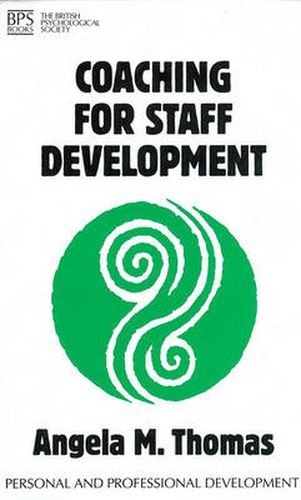Coaching for Staff Development
Angela Thomas

Coaching for Staff Development
Angela Thomas
What is coaching? The ultimate aim of coaching is the effective use of everybody’s abilities and potential. Why is coaching important? The effective manager gets work done largely through others and thus the ability to coach is one of the most important skills of the manager’s job. It goes well beyond delegation and involves the short- and long-term development of staff. Good coaching brings direct benefits both to the organization and to the individuals involved - better working practices, enhanced teamwork, increased creativity, better communication, less crisis management and enhanced personal satisfaction, amongst other things.Dr. Angela Thomas, who runs her own Consultancy and conducts coaching and other courses in Europe and the States, guides the reader through the following five stages of the coaching process using case studies, examples and exercises to promote interactive learning: Determine the reasons for coaching and decide on the topic; identify long- and short-term goals, and define targets and standards; device and develop specific overall individual session plans; develop specific competence and confidence taking account of individual learning styles; and, recap on what has been agreed, set deadlines and check on progress. Other titles in this series include: Managing Time by David Fontana; and, Interpersonal Conflicts at Work by Robert Edelmann; Effective Teamwork by Michael West.
This item is not currently in-stock. It can be ordered online and is expected to ship in 7-14 days
Our stock data is updated periodically, and availability may change throughout the day for in-demand items. Please call the relevant shop for the most current stock information. Prices are subject to change without notice.
Sign in or become a Readings Member to add this title to a wishlist.


